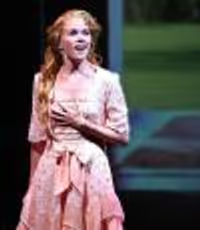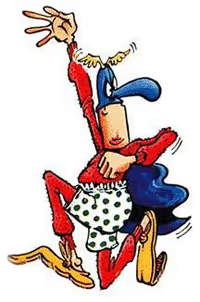Sad to see Honeymoon go...and this disturbing trend
#100Sad to see Honeymoon go...and this disturbing trend
Posted: 4/6/15 at 4:05pm
I agree with philly03.
Newintown, sorry I missed that you were responding to Blue Eyes. I agree with what you said there. I think there is a labeling issue, partly pointed out re Top 40. Beyond that, I think it is largely a chicken and egg issue. Certainly every song in every show is not suitable for pop exposure (and they never were) but if there were more first tier pop oriented songwriters making musical theatre, there would be more of that music being listened to by the general public. Just as there was when it was Gershwin, Porter etc. But Beyonce is not gonna sing Jason Robert Brown, and neither is Justin Timberlake. (Bieber, I don't care about.) Gaga I can imagine writing for the theatre, and had she arrived in a reintegrated world, I think she may well might have. As it is, that likely won't happen until she becomes Lauper. And yes I do think it's a bad thing that there is a chasm, because Broadway musical theatre is a popular genre, not a rarefied one. Anyway, I understand your points and hopefully you understand mine.
#101Sad to see Honeymoon go...and this disturbing trend
Posted: 4/6/15 at 4:34pm
Oh, yes, I definitely do, Hogan. But I do believe there's nothing so certain as change, and I think popular music has changed a lot since the mid-50s.
For one thing, there's SO much more money to be made today by a top recording artist; I doubt that Frank Sinatra or Judy Garland cleared as much in 20 years as Bieber made last year alone, even adjusted for inflation.
And popular singers today don't need the American Songbook or standards - they have teams writing tailor-made material for them that showcases what they do, and is free of the dusty tang of the "old."
But the folk song went out of style with the masses, as did commedia and other forms. I think musical theatre is now its own specific form, like opera, not needing to be tied to popular song. It may appeal to fewer people than it did 60 years ago, but it's evolving. And I find that interesting to watch.
Updated On: 4/6/15 at 04:34 PM#102Sad to see Honeymoon go...and this disturbing trend
Posted: 4/6/15 at 5:02pm
I agree a bit with newintown, at least logistically. Probably the only genre of music that is still written similar to the way Broadway musicals are written (ie a composer and lyricist written for just a voice) that is popular is country. And country and Broadway don't have really any cross over, particularly audience-wise.
I could actually see "It All Fades Away" from Bridges or a few tunes from Bonnie & Clyde being recorded by country singers, but they aren't very specific songs and could be plumped into any artist's trunk songs. Wildhorn often says that the Civil War concept album was an easy sell for the record company, but getting the artists to commit wasn't as easy. They heard Broadway and ran away, until they heard the music.
#103Sad to see Honeymoon go...and this disturbing trend
Posted: 4/6/15 at 5:55pm
If there ever was going to be a recent cross-over of popular and Broadway music, it had its chance with Glee and its covers. But, in going through the compilation of what songs charted and where, the show tunes were generally, not so popular. Glee did much better with the covers of already popular songs.
I do wonder what would happen if, in the current world, a Broadway producer got a "top" act to sing a song from a show prior to opening or in the first few weeks. (I wonder how much that would cost!) I think "People" had charted before Funny Girl even opened. U2 did sing "Boy Falls From The Sky" at concerts before Spider-Man opened, but even if that helped, I don't know that it was released as a U2 single ahead of time.
#104Sad to see Honeymoon go...and this disturbing trend
Posted: 4/6/15 at 6:00pm
newintown,
I agree popular music evolves over time, but that's precisely the point: musical theatre has to evolve as well, unless it is to be a place for museum pieces. If you believe that musical theatre has become the equivalent of opera, then there is no place for it on commercial Broadway. And if that's the case, then it explains why Broadway has become more amusement park or Vegas, and less theatre. That's not something I want to see. I do believe (and have said ad nauseum) that there are people working in musical theatre who belong in the non-profit world where, like opera, they can do work that is not calculated to appeal to the masses. I have no problem with that. But I do have a problem with the devolution of commercial Broadway into a home for mediocrity, and to me the only way to avoid that is to entice people who can write music people want to hear into writing for the genre. And yes that also involves learning what that takes, and not just throwing some songs at it like Bono did, or having pre-existing songs shoehorned into jukebox musicals (and really, the only reason for jukebox musicals is that it is a way of getting popular music into shows). This season, we had a top tier songwriter make a fine effort on a Broadway show. But it happened well after his star had lost its intensity. What we need is to have people in their prime doing the same thing. Why don't they? See what philly03 said above. And yes, Hamilton is an example of precisely what needs to happen, over and over again until it becomes the norm. You may not be optimistic about that happening, but I am. Because otherwise, we will get more and more dumb ideas like Honeymoon in Vegas.
#105Sad to see Honeymoon go...and this disturbing trend
Posted: 4/6/15 at 6:03pm
Thinking about this still, it would be nice is performers who got their start on Broadway paid a little homage. Thinking someone like Ariana Grande.
#106Sad to see Honeymoon go...and this disturbing trend
Posted: 4/6/15 at 6:17pm
ggersten-
re glee, I think it feeds into the non-popular side of music, and so the result is fairly predictable.
re pre-released songs by pop stars. yes, but I don't think you can "buy" that. I think it has to happen organically. This is not a problem with an overnight solution.
Sunny11
Broadway Star Joined: 9/3/14
#107Sad to see Honeymoon go...and this disturbing trend
Posted: 4/6/15 at 6:17pm
"Glee discography
If there ever was going to be a recent cross-over of popular and Broadway music, it had its chance with Glee and its covers. But, in going through the compilation of what songs charted and where, the show tunes were generally, not so popular. Glee did much better with the covers of already popular songs.
I do wonder what would happen if, in the current world, a Broadway producer got a "top" act to sing a song from a show prior to opening or in the first few weeks. (I wonder how much that would cost!) I think "People" had charted before Funny Girl even opened. U2 did sing "Boy Falls From The Sky" at concerts before Spider-Man opened, but even if that helped, I don't know that it was released as a U2 single ahead of time. "
These are 10 Glees most downloaded songs according to billboard.
http://www.billboard.com/articles/columns/pop-shop/6509278/glee-cast-10-best-selling-downloads
Included is Kurt and Rachel's pop arrangment of defying gravity and a " mash up" of singing in the rain/umbrella so musical theather songs did have some success. Also off the top of my head Rachels dont rain on my parade and Schuesters over the rainbow charted relatively high in comparision to its other releases at the time.
#108Sad to see Honeymoon go...and this disturbing trend
Posted: 4/7/15 at 11:30am
Thinking someone like Ariana Grande.
#109Sad to see Honeymoon go...and this disturbing trend
Posted: 4/18/15 at 9:46pm
And popular singers today don't need the American Songbook or standards - they have teams writing tailor-made material for them that showcases what they do, and is free of the dusty tang of the "old."
And yet so many of today's popular singers, well, mostly aging popular singers have chosen to sing the "standards," including some whose voices I don't think are particularly suited to these songs such as Gloria Estefan and in particular Willie Nelson. Especially Willy Nelson. Accordient to Wikipedia his 1978 collection of "standards" was "considered risky at the time but the album has become the best-selling and perhaps the most enduring of Nelson's career."
Started by Linda Ronstadt, of course, the group includes Keith Richards(!), Carly Simon, Joni Mitchell, Pat Benatar and Paul McCartney. Many other young artists went right to the "songbook" with little or no stop at the current pop. Harry Connick, Diana Krall, John Pizzarelli and a personal favorite, Stacy Kent. Tony Bennett is more popular now than when in the prime of his career.
Whether we are talking about artists who started off with the standards or who have been attracted after begining with current pop, even I find it puzzling why a female vocalist would be compelled to cover for the 1000th time (literally) "Someone To Watch Over Me" or "Bewitched, Bothered and Bewildered." But then I don't understand how a Broadway star can survive eight shows a week of the same performance for a year without tiring of it.
The defection (too strong a word) of Lady Gaga to Rodgers and Hammerstein causes the greatest shock. It will be interesting to see how far she goes with this.
My very limited knowledge of pop comes from American Idol. I'm always surprised that so few of the competitors can go out on the stage and sing a simple ballad.
Those who grew up in one era cannot carry on an objective discussion of the quality of the music of those who developed in a different era. Each has too much of an emotional investment in his or her's own music. It is up to the following generations, which do not have the emotional ties, to determine the best of prior generations by their attraction to it.
Updated On: 4/19/15 at 09:46 PM#110Sad to see Honeymoon go...and this disturbing trend
Posted: 4/19/15 at 9:03pm
Updated On: 4/19/15 at 09:03 PM
Videos





